12







B12 Plain Talk: Heritage Edition
November 22, 2013 www.plaintalk.net
MUSICAL HERITAGE AT USD
Arthur Barrow: Frank
Zappa’s ‘drill sergeant’
By Travis Gulbrandson
travis.gulbrandson@plaintalk.net
When Texas native Arthur
Barrow arrived in Los
Angeles in 1975, all he
wanted to do was to play bass
for Frank Zappa.
By 1978, that’s exactly
what he was doing.
“Somehow I got lucky,”
Barrow said.
Barrow came to the
University of South Dakota
in September to speak with
students, as well as play a
concert of Zappa music for
the public in a group
consisting of himself, USD
students and faculty
members.
A photo of the 1896 University of South Dakota Band from the National Music Museum
“I’m really going to try to
Archives.
assimilate a half-length
(Photo courtesy of the National Music Museum) version of a Frank Zappa
concert,” he said the
afternoon before his evening
performance. “One of the
things that (Zappa) always
did was segue all the songs
together. Once the show
started, it didn’t stop for 90
minutes. The music never
stopped. It was just one song
after another, after another,
after another, after another.”
Among the Zappa tunes
the Vermillion audience
heard the night of the
concert were “Chuga’s
Revenge,” “Cyborg,” “Ain’t
Got No Heart” and “Peaches
En Regalia.”
A graduate of North
Texas University, Barrow got
Zappa’s contact information
through his friendship with
keyboardist Don Preston.
In the summer of 1978,
Barrow heard Zappa was
looking for a new bass player.
“I thought, ‘This is my
opportunity,’ so I got his
number and got him on the
phone,” Barrow said. “I told
him I learned a piece called
(Photo courtesy of the National Music Museum) ‘Inca Roads,’ a very
complicated piece … and I
think he didn’t even believe
me.”
Zappa told him to learn
another piece – “St.
Alphonzo’s Pancake
Breakfast” – by ear for his
audition, as well.
“I played it, and he said,
Arthur Barrow plays the bass during a presentation for University of South Dakota students in September. Barrow visited
USD to perform a concert of the music of Frank Zappa – with
whom he played for several years from the late 1970s to the
early 1980s.
(Photo by Travis Gulbrandson)
‘Well, I heard a few wrong
notes, but you have potential.
Can you stick around for a
while?’” Barrow said.
He ended up joining the
band for 2 ½ years, and
recorded with Zappa after
that, as well.
It wasn’t easy. Despite
Zappa’s renowned
perfectionism, he was
constantly changing songs
during rehearsals – stringing
them together, changing
speeds, adding repeats.
“I would literally feel my
brain spasm inside my head
with all the information,”
Barrow said.
Eventually, Barrow
became the “Clonemeister,”
which was the name used for
the person who directed
rehearsals when Zappa
wasn’t around.
“Rehearsals were usually
about eight hours long, and
Frank would only show up
for the second half,” Barrow
said. “When he was there, he
would say, ‘You do this and
you do this. …’
“I had a tape recorder and
I’m taking notes, and I would
go home at night with my
tape and notes and write
down what everybody was
supposed to do, and I’d come
back the next day,” he said.
It was more like being a
drill sergeant than a musical
director, Barrow said.
“If somebody would
forget what Frank told them
to do, I would say, ‘No, no,
you were supposed to do
that.’ I’d drill the song a few
times until it was the way he
wanted it the night before.
Then he would come in, and
usually change it all again.”
Rehearsals usually took
six weeks or more. Barrow
said band members could
have picked up everything if
there had been charts
outlining what Zappa
wanted to do.
“But that wasn’t the way
he worked,” Barrow said.
Despite all the hard work,
Barrow said rehearsals were
almost more fun than the
concerts themselves.
“It was so great to be part
of the creative process, to be
(Zappa’s) tool,” Barrow said.
“He would figure out what
each musician was good at,
and he would adapt
arrangements to the
ensemble that he had. He
would really challenge you.
He would ask me to do
something that, on my own,
I would have thought, ‘Well,
that’s impossible. I can’t do
that.’ He’d say, ‘Well, try it.’
“I’d say, ‘Well, if Frank
thinks I can do it, maybe I
can do it.’ He’d try and really
push the envelope … and
really expand you as a
musician.”
(Photo courtesy of the National Music Museum)
Your Locally Owned
Pharmacy
Reliable Prescriptions
Hallmark Greeting Cards
MON-FRI 8am–9pm • SAT 8am–5:30pm
The University of South Dakota Cadet Band, Fall 1899.
(Photo courtesy of the National Music Museum)
n CCDCB
From Page B6
singing in church and to
WNAX in the car anytime
she was on the road with
her dad. Highlights have
been singing three songs
with the house band at
Tootsie’s Orchid Lounge in
Nashville, TN, and
performing before the
Trick Pony concert. She
has been with the band for
14 years.
Tom Zoss, Yankton
(formerly from Beresford),
has been drumming all his
life. “I used to beat all the
neighborhood garbage cans
with twigs and used to
make complete drum sets
out of pots, pans, Tinker
Toys, and just about
anything else that made
noise,” said Zoss. Tom’s
formal training started in
fifth grade and continued
through college. He finetuned his craft by watching
“live concerts” on MTV
and by borrowing the
school drum set on
weekends. During high
school, Tom and high
school buddies formed the
Prairie Wind Band. He was
called upon by the late
Gary Knutson to be the
original drummer of the
Poker Alice Band.
Since then Tom has
played/filled in for over 20
area bands playing
anything from country to
jazz to rock and blues. Tom
returned to his country
roots by joining the Clay
Creek Deaf Cowboy Band
in 2002, but still plays blues
and rock with other local
musicians. Tom’s influences
include Phil Collins,
Chester Thompson and
Def Leppard’s one-armed
drummer Rick Allen.
Highlights from Tom’s
career include the Trick
Pony show, opening for
Foghat, Marshall Tucker
Band, and Johnny Johnson,
and playing the Sioux City
Blues Fest and the Sioux
Falls Jazz Fest. He has been
with Clay Creek Deaf
Cowboy Band for 11 years.
--Editor’s note: Many
thanks to Dawn Nelson for
providing us the
background information
about the Clay Creek Deaf
Cowboy Band and the
biographical sketches of its
members.
624-4444
800-801-5130
5 W. Cherry Street, Vermillion
Celebrating
Clay County
Musicians

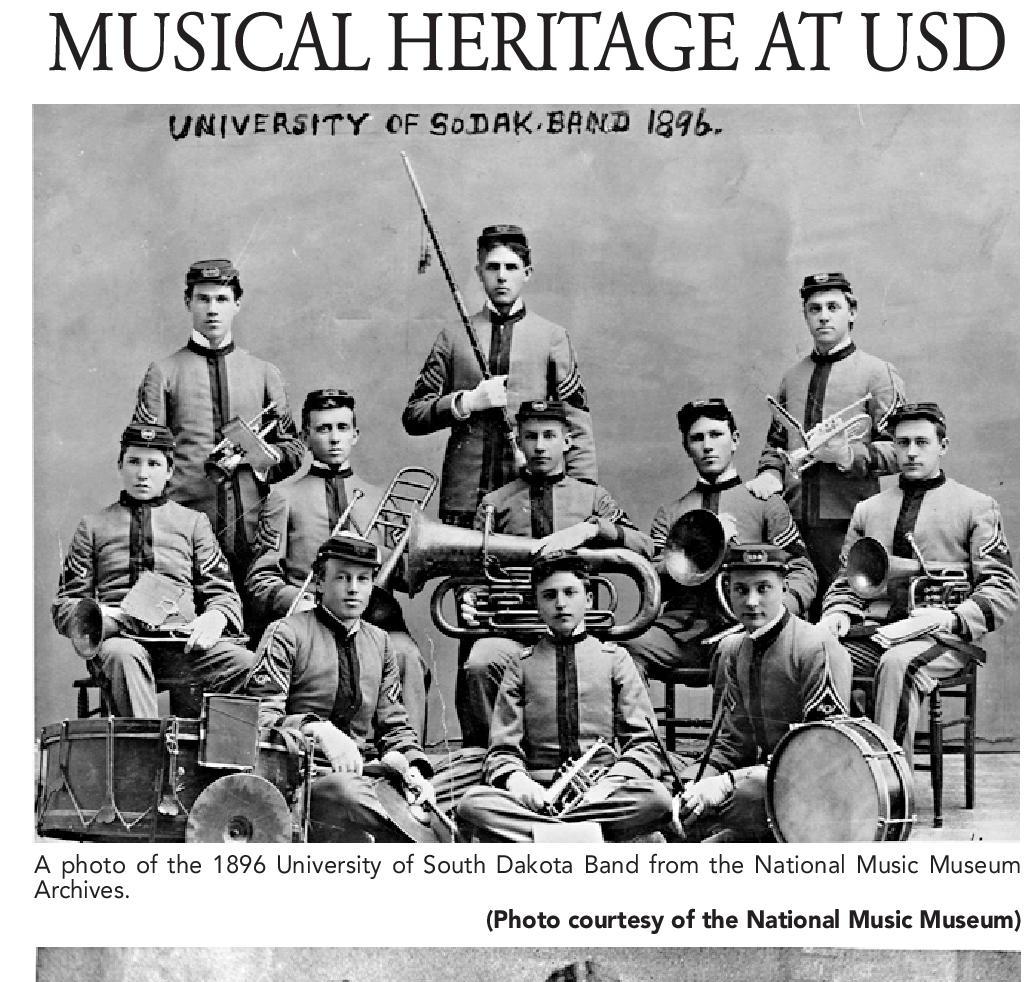
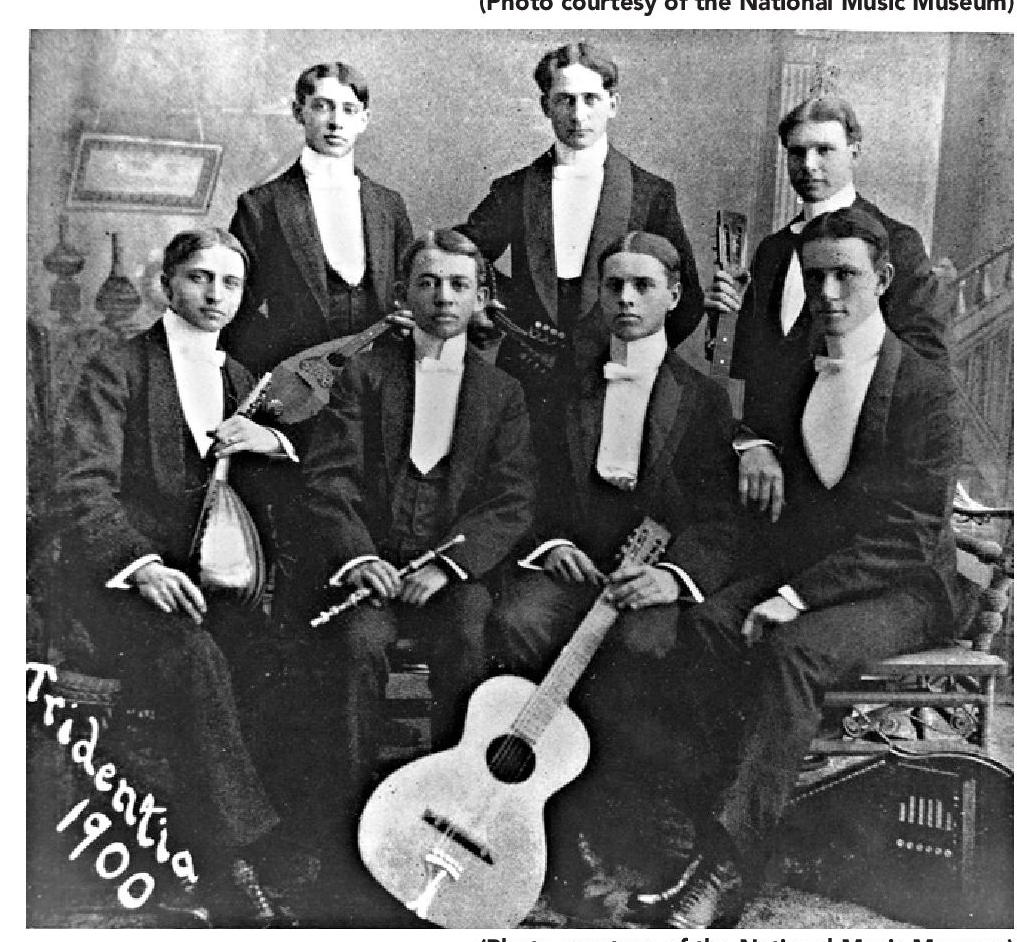
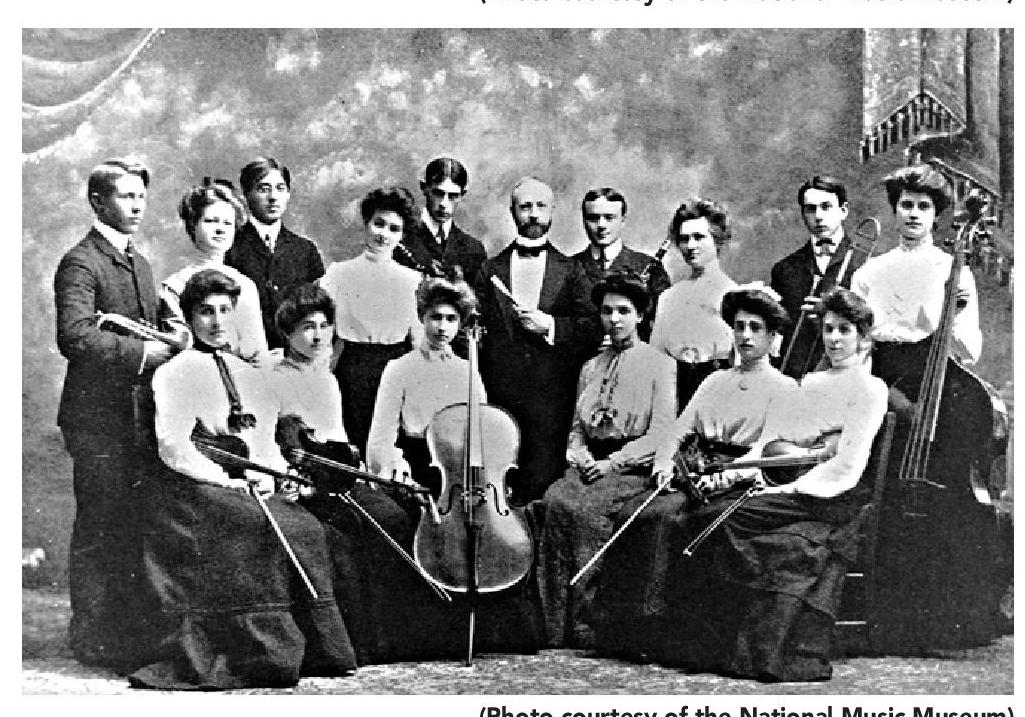
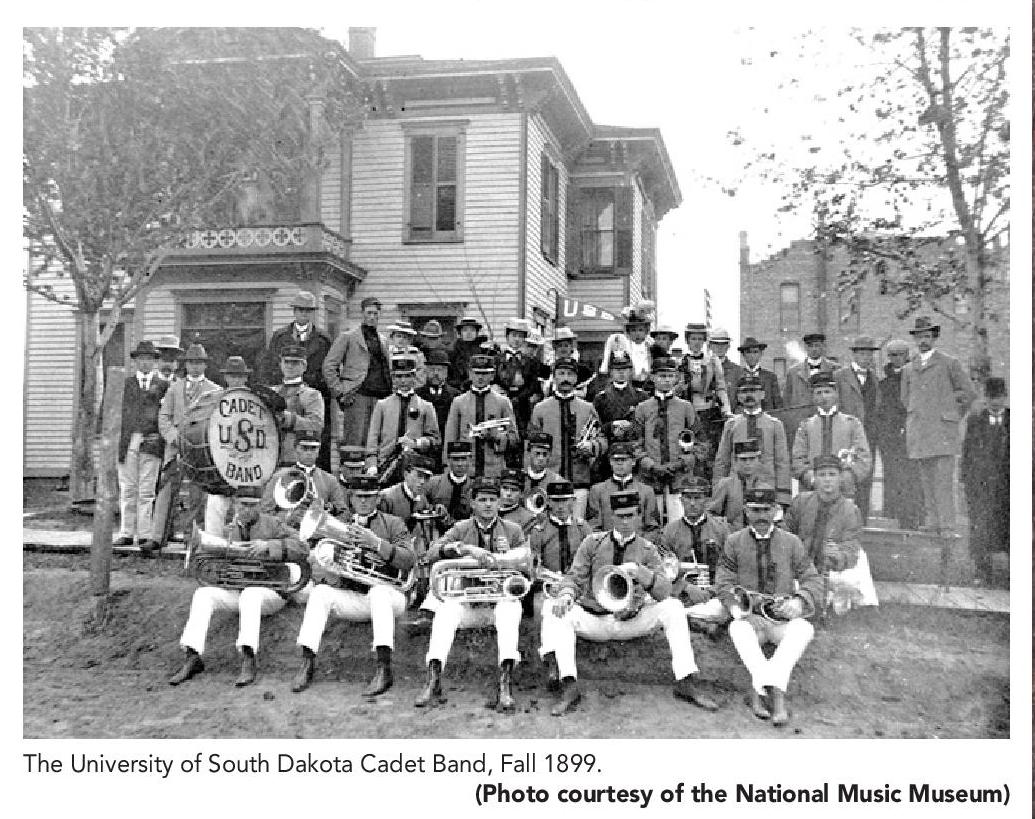
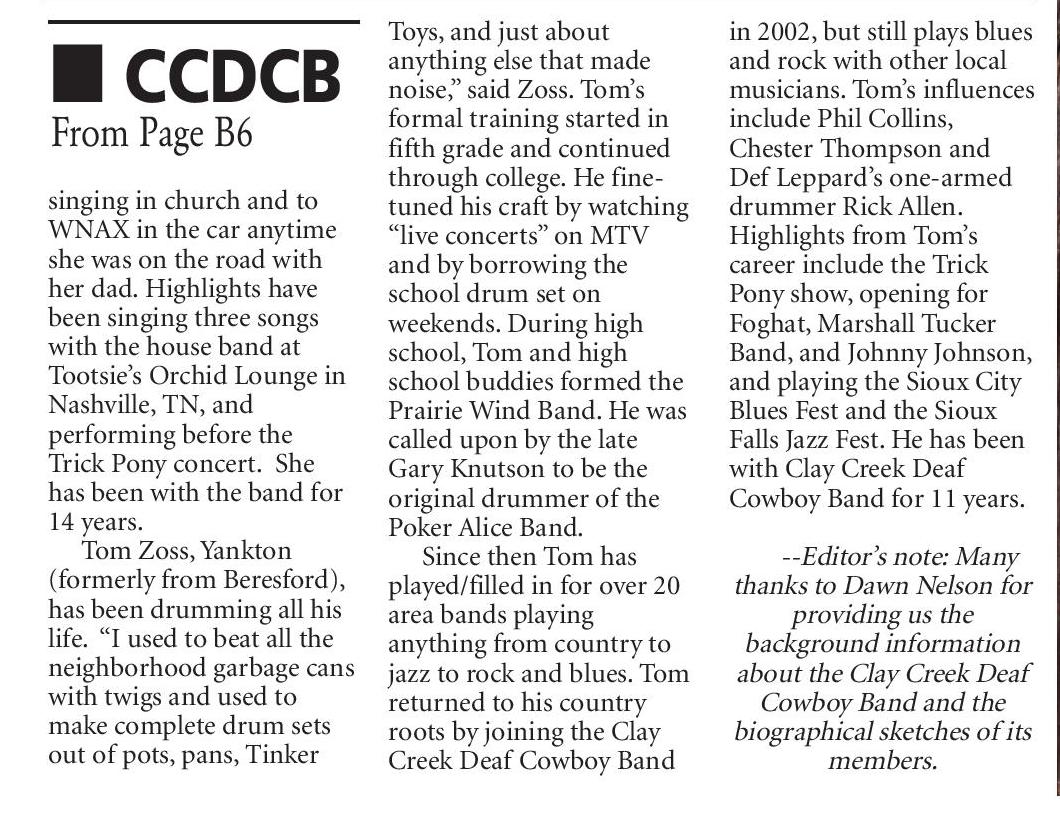
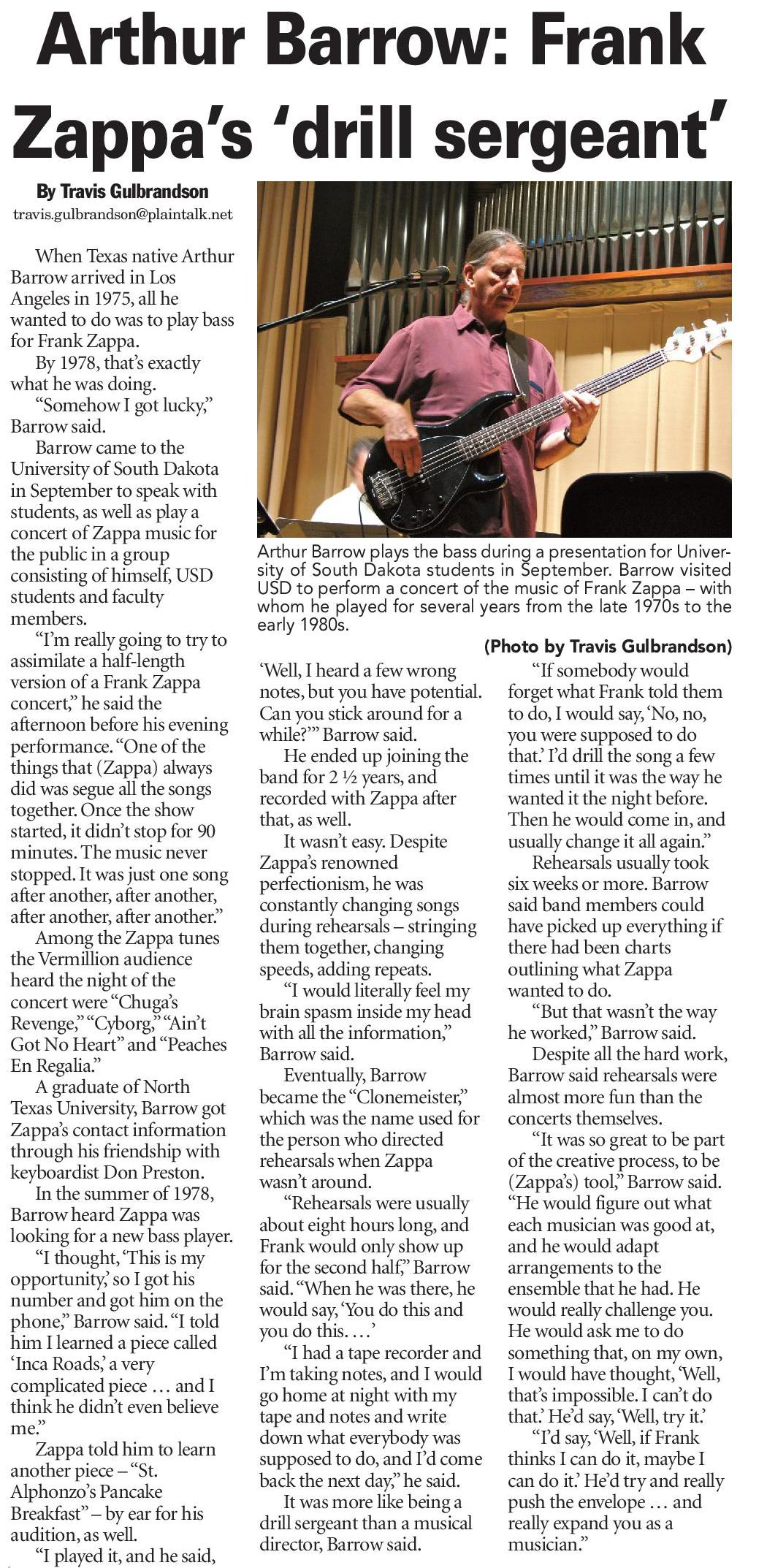

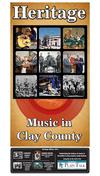
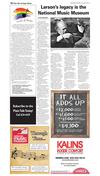
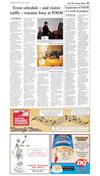
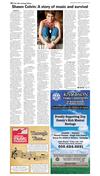
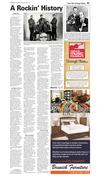
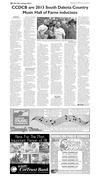
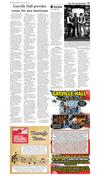
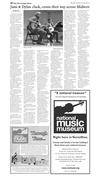
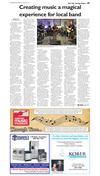
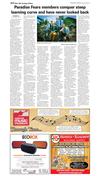
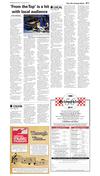
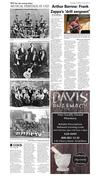
 Previous Page
Previous Page





